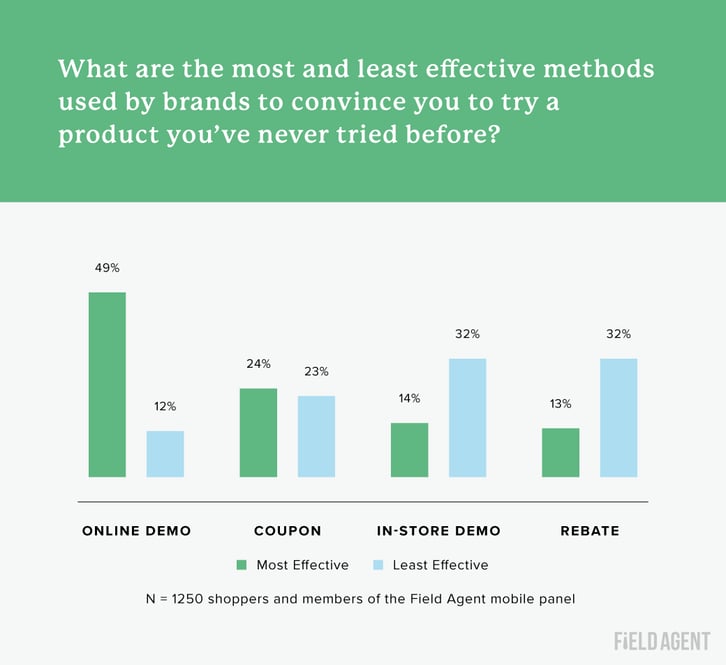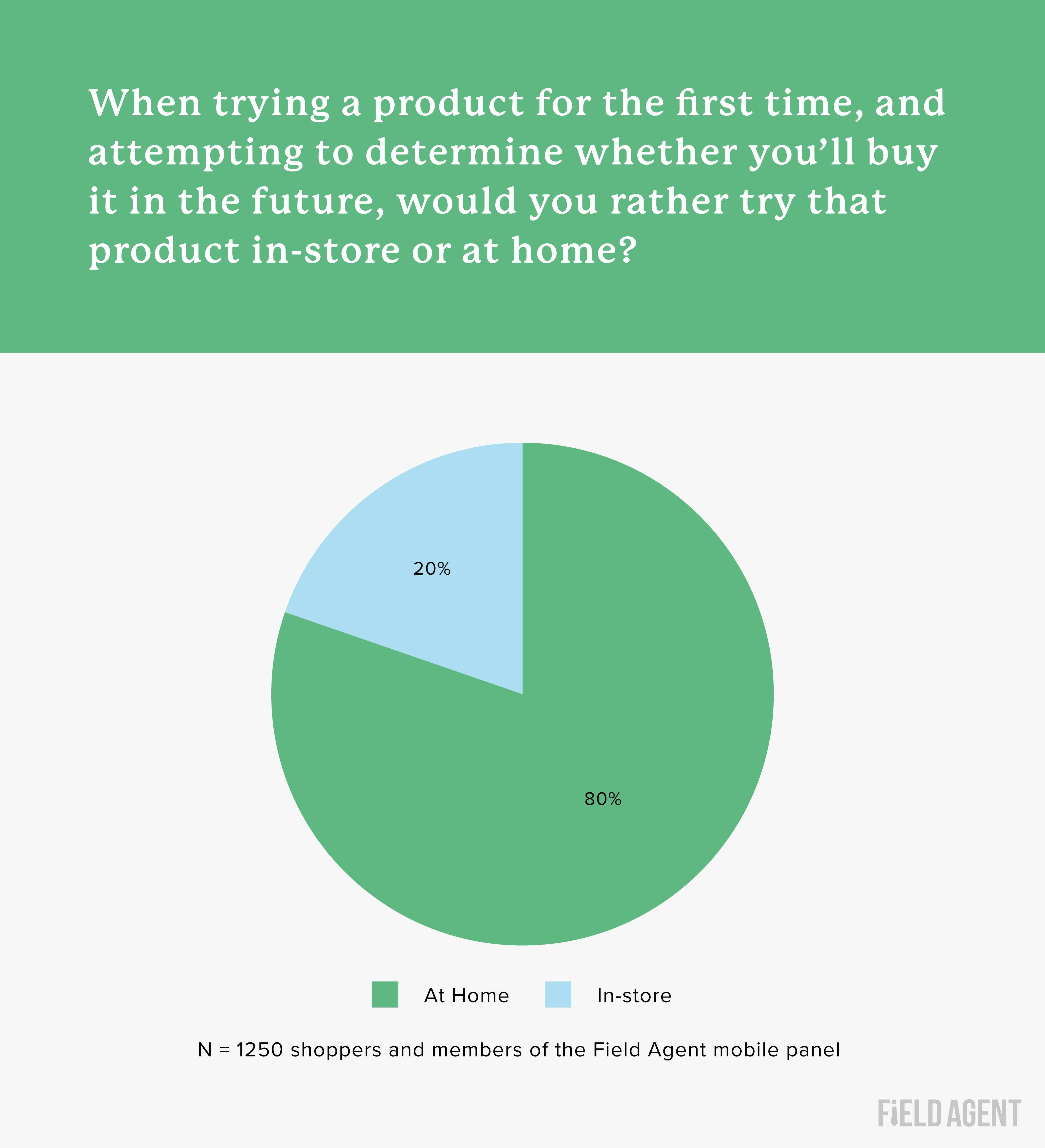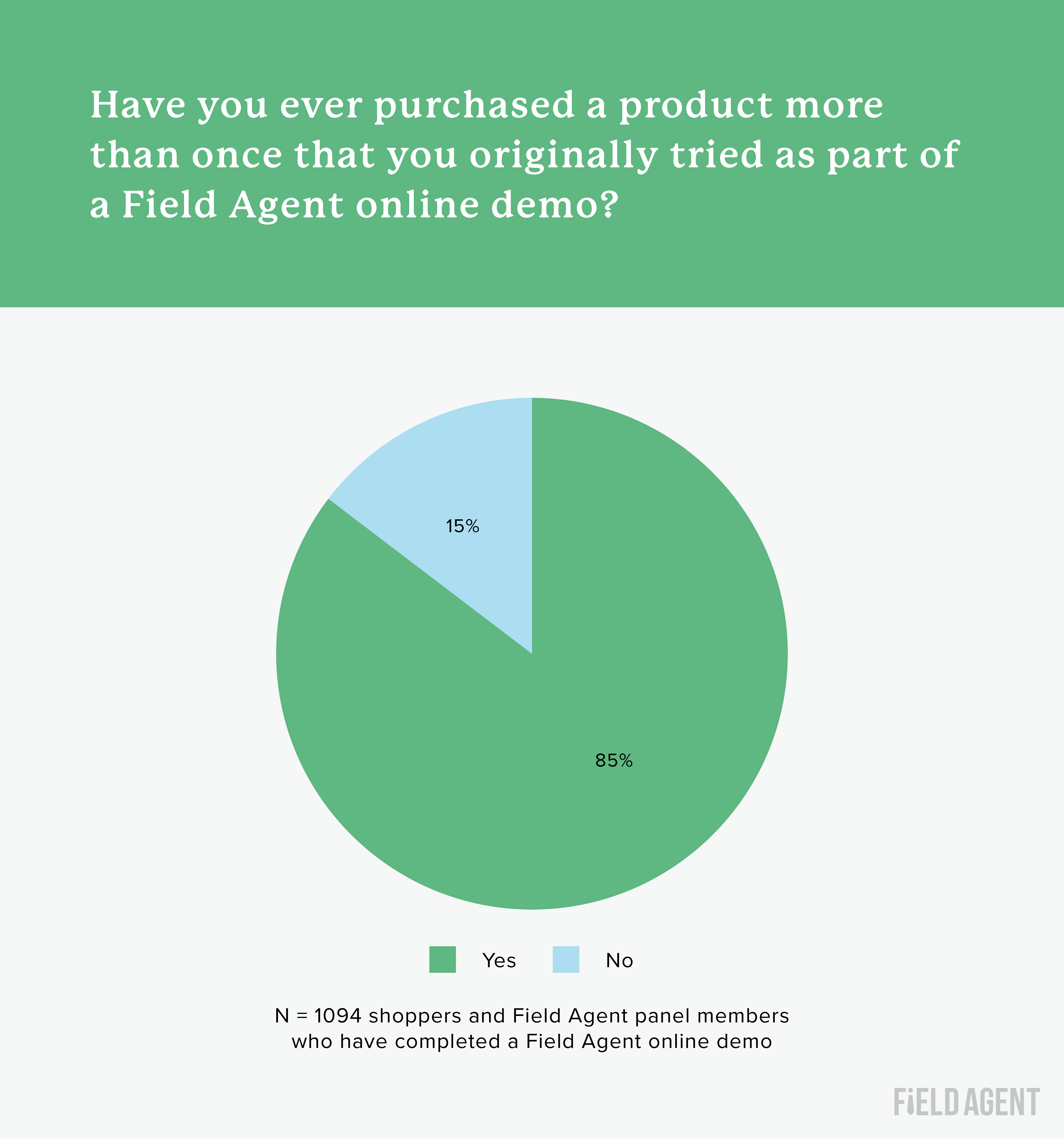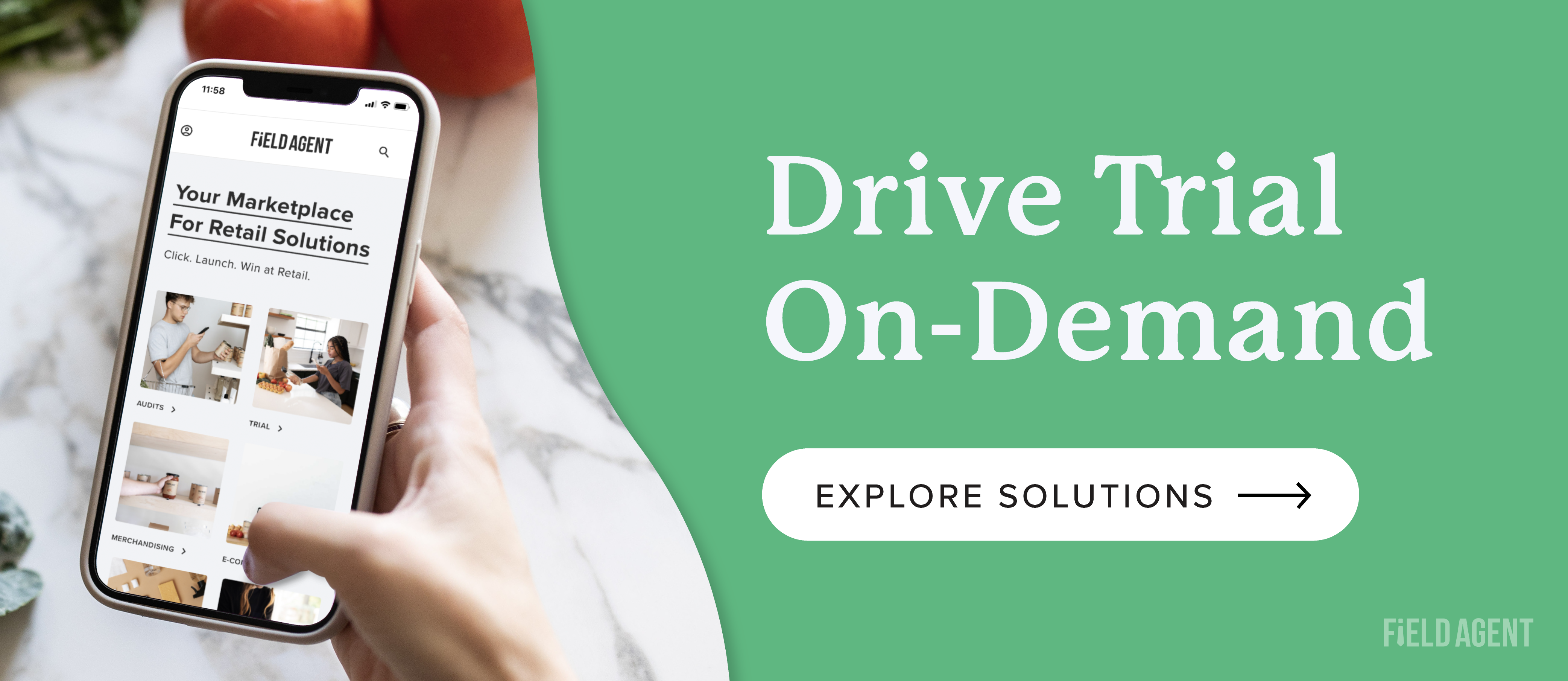
Shoppers on Trial: What’s the Best Method for Driving First Purchase?
Launching a new product. It's a road fraught with challenges.
You've invested in R&D, tested and tested again, and now you're ready to go to market. However, there's one last hurdle to clear, and it can be a real doozy...
Getting shoppers to try the product the first time. If only they'd try it, they'd possibly love it...and maybe even buy it over and over and over.
As we pointed out in our primer, "How Do I Drive Product Trial," new products always start from behind. They don't enjoy the awareness, content, sales record, or trust of many incumbent brands.
When it comes to new products, convincing shoppers to give it that first try is priority #1.
That's why brands invest heavily in strategies, gimmicks, and schemes, all designed to move products those last few inches: from the shelf to the shopping cart—in-store or online.
But which tactics work best at driving trial of new products?
- Coupons?
- Rebates?
- In-store demos?
- What?
Let's shed some light. With the help of the shoppers themselves.
Coupons, Rebates, or Demos? Survey Identifies Shoppers' Preferences
To better understand how brands can influence shoppers to try a product for the first time, we surveyed 1,250 Field Agent app-users* (or "agents") through the Field Agent platform.
*All survey respondents were U.S. adults at least 18 years of age, smartphone owners, and members of the Field Agent mobile panel. The surveys were executed through the Field Agent platform, March 3-11, 2022, with a non-random sample of shoppers. Survey quotas/demos: Gender - Female (51%), Male (49%), Age - 18-20 (1%), 21-29 (15%), 30-39 (39%), 40-49 (27%), 50-59 (14%), 60+ (5%); Race/Ethnicity - Caucasian/White (64%), Latino/Hispanic (16%), African American/Black (14%), Other (6%).
We asked these Field Agent app-users to consider four common trial tactics:
- Coupons (discounts offered at the time of purchase)
- Rebates (discounts, usually larger than coupons, offered after purchase)
- In-store demos with free samples
- Online demos (demos executed through a third-party app or website, offering full or partial reimbursement, plus a few dollars incentive, to purchase, try, and provide feedback about a product)
The sample then answered several questions to help us understand the relative efficacy of each method at driving trial.
It's reasonable to assume the vast majority of respondents had previous experience with coupons, rebates, and in-store demos. And, in all, 88% had completed at least one online demo through the Field Agent platform. Perhaps unlike the general population of shoppers, then, our sample largely had experience with all four trial-inducing tactics.
However, in the event a respondent did not have past experience with one or more tactics, we also provided descriptions of each.
So, let's go exploring...Which methods are most and least effective at driving product trial?
Of the four methods described above, which did shoppers highlight as the most (and least) persuasive, when it comes to making that first purchase?
As you can see, right at half (49%) of shoppers identified online demos as the single most effective tactic of the four. Coupons (24%) crossed the finish line in second.
Conversely, in-store demos (with free samples) and rebates, tied at 32%, were identified as the least effective of the four methods for driving trial, from a shopper standpoint.
What if you could drive trial and generate sales at the same time?
Why are online demos preferred by our app-users?
Online demos soundly defeated three traditional trial methods in our survey of 1,250 Field Agent app-users. But what are online demos, and why are they so preferred by shoppers on our panel?
Encompassing solutions like Field Agent's Digital Demo, Buy & Try, and Ratings & Reviews, online demos recruit shoppers to purchase a product in-store or online, usually for full or partial reimbursement. Customers then try the product at-home and, for an incentive of a few dollars, provide the brand with user feedback, an authentic product review, or even user-generated content (UGC) like digital articles that can be shared online.
We asked respondents to share in their own words why they chose certain methods as their most and least preferred methods for trying a new product. Of those who selected online demos as their favorite tactic, three distinct themes arose from their qualitative remarks.
They like online demos because they allow them to...
- Try products totally risk-free
- Share feedback/have a voice
- Try products at home
1. Try Products Totally Risk-Free
According to many shopper comments, this is the real drawback of coupons and rebates. Such methods are not exactly risk-free. The shopper must stake precious dollars—and time—trying an unknown product that may or may not disappoint.
But what shoppers said they see as a disadvantage of coupons and rebates they actually consider a cardinal strength of online demos. As one shopper said...
[An online demo] takes the financial gamble out of trying a completely unknown product. It also guarantees there's no bias based on the cost and instead creates a focus on the actual product and its qualities (good and bad).
And when it comes to rebates, agents said they're often not worth the hassle. One wrote...
I don't like all the rigmarole and hoops you have to jump through to collect everything [for a rebate]. It always seems to be some sort of confusion.
Indeed, more than one respondent said, from their perspective, it looks like companies intentionally make the rebate process hard—"to avoid losing money."
But online demos, many noted, reduce the risk of investing both money and time.
2. Share Feedback/Have a Voice
Many other survey respondents lauded online demos as a chance to "be heard." Coupons, rebates, and traditional in-store demos don't generally provide that opportunity.
As one respondent said...
[Online demos allow] me to not only try the products, but also share my opinions with others. This helps not only myself, but also others to learn how well a product works or performs.
How do online demos provide a platform for shoppers to express their opinions?
This depends on the online demo itself. For instance, Field Agent offers three online-demo variations, and each offers a different take on collecting, harnessing, and distributing customers' attitudes about and experiences with a new product.
- Digital Demos: After trying the product at home, first-time customers answer a series of questions about the product and their experience with it. Customers are then encouraged to share on social media.
- Buy & Try: Here, customers provide feedback designed to generate insights about, for instance, the user experience, satisfaction levels, and repeat intentions.
- Ratings & Reviews: Customers are directed to post an authentic rating and review on a specified site, including ecommerce and/or brand sites.
Whether it's reviews, insights, or user-generated content...
Many of our agents said they not only prefer online demos for the risk-free trial, but also the chance to air their opinions in ways that can actually effect change.
3. Try Products At Home
Another reason online demos made such a strong showing in our survey:
They allow customers to try the product in-home, under realistic trial conditions, as opposed to standing in a crowded, busy store aisle.
Indeed, in our survey, 4-in-5 (80%) shoppers said they prefer to try products at home.
But why exactly?
We asked those who prefer to try products at-home versus in-store (n = 999) to identify their top reason for this opinion. Thirty-eight percent selected "I can try it under realistic conditions," while 37% answered "I can try the product more than once and really give it a decent trial-run."
With traditional in-store demos and free samples, many respondents said they find it hard to imagine the product in their everyday lives. Tasting a condiment in a plastic cup, for example, is a very different experience from trying it with your secret burger recipe, grilled right in your own backyard.
Plus, online demos allow brands—and consumers—to try products that are difficult to try inside stores. As one respondent said...
In-store demos are limited in products they can push; a demo for cat food or bathroom cleaner or school supplies just isn't workable.
For driving trial, it may be true what they say: there really is no place like home.
But do online demos drive REPEAT purchases of products?
I mean, this is the question, right?
The reason brands invest so much money, time, and energy in driving trial is so consumers will, hopefully, try the product, like the product, and buy the product again. On repeat.
In all, 1094 of 1,250, or 88%, of respondents in our survey said they had tried one of Field Agent online demos—Digital Demos, Buy & Try, Ratings & Reviews—in the past.
But did they buy the product again, even when they weren't required or incentivized to do so?
Actually, yes. Altogether, 85% said they've made a repeat purchase of a product they originally bought from an online demo.
Those are strong odds.
Very strong.
Sample the Best Way to Drive Trial
Shoppers love online demos for all the reasons above.
And brands love them, too.
Our online demos, including Digital Demo, Buy & Try, and Ratings & Reviews, are designed to be shopped, purchased, and launched with just a few clicks, in just a few minutes.
They're not only an effective way for generating first purchases, they're an easy way.
Explore the solutions in our marketplace.
Digital Demo, Ratings & Reviews, Product Trial, Retail practices




